外研版(三年级起点)英语六年级上册 Module 6 Unit 2 I’ve got a stamp from China课件(共40张PPT)
文档属性
| 名称 | 外研版(三年级起点)英语六年级上册 Module 6 Unit 2 I’ve got a stamp from China课件(共40张PPT) |
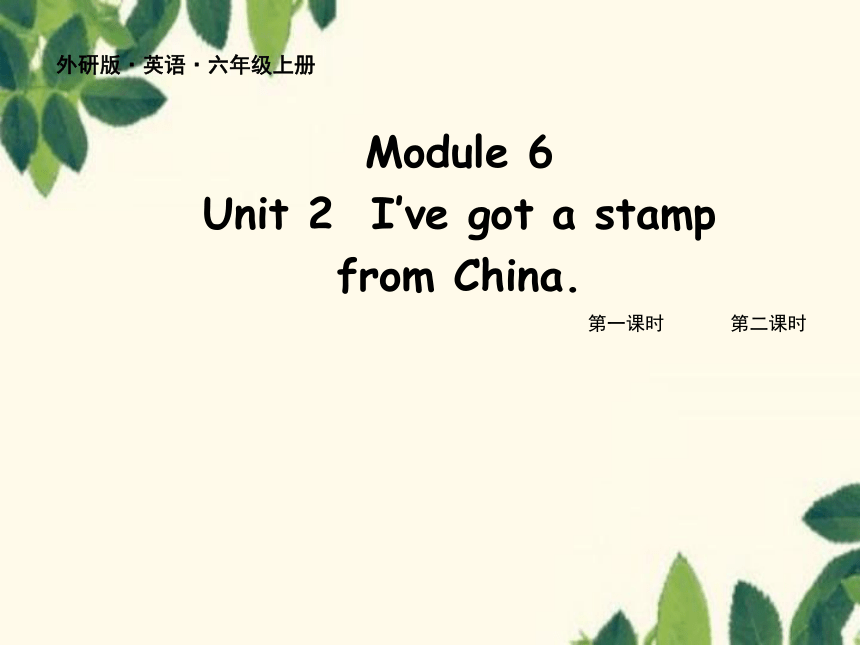
|
|
| 格式 | ppt | ||
| 文件大小 | 12.1MB | ||
| 资源类型 | 教案 | ||
| 版本资源 | 外研版(三年级起点) | ||
| 科目 | 英语 | ||
| 更新时间 | 2022-09-30 00:00:00 | ||
图片预览

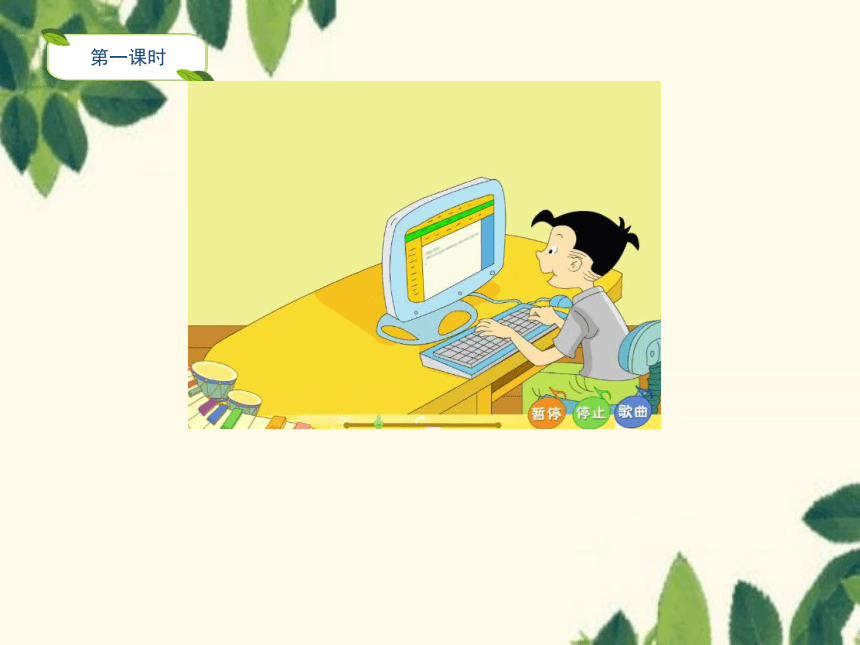
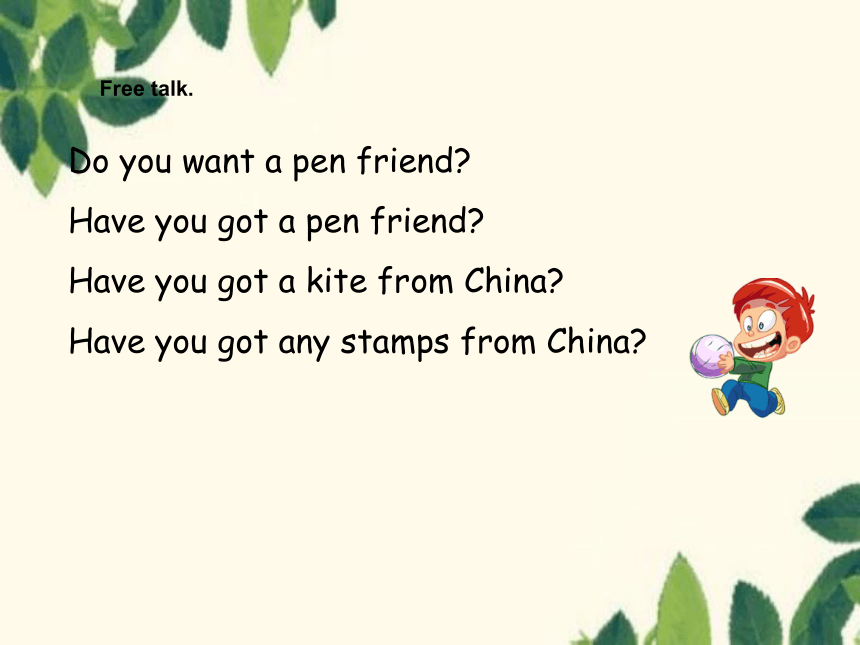
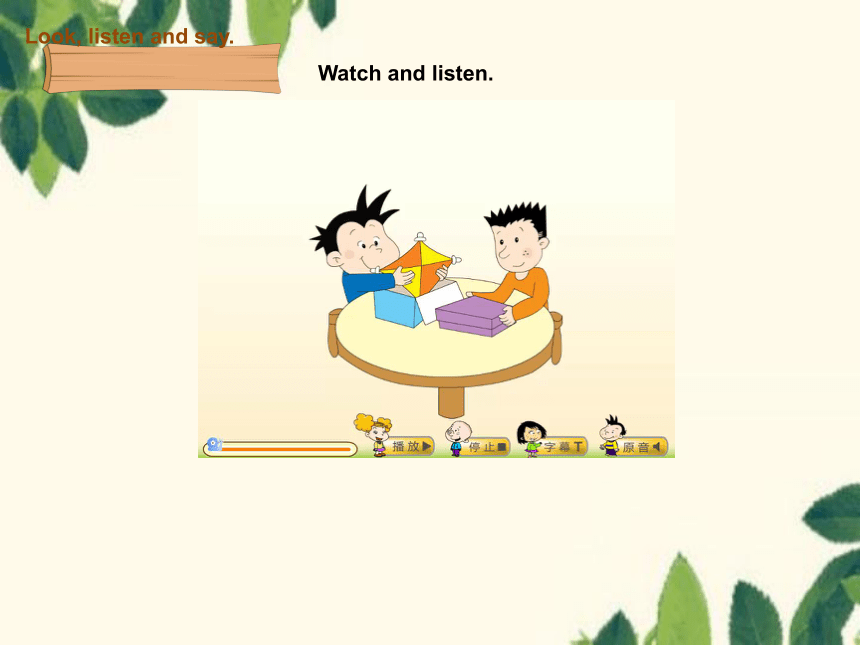
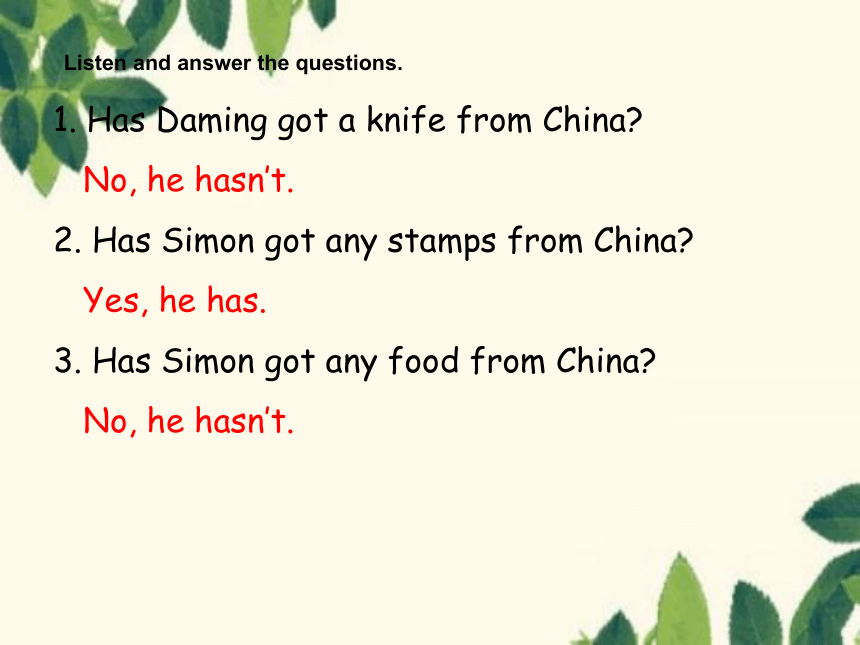

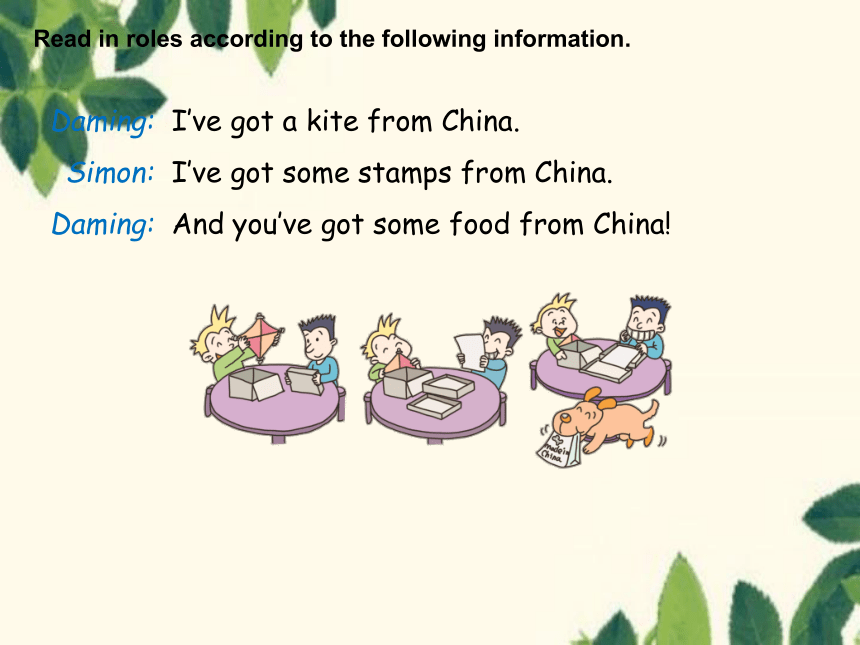
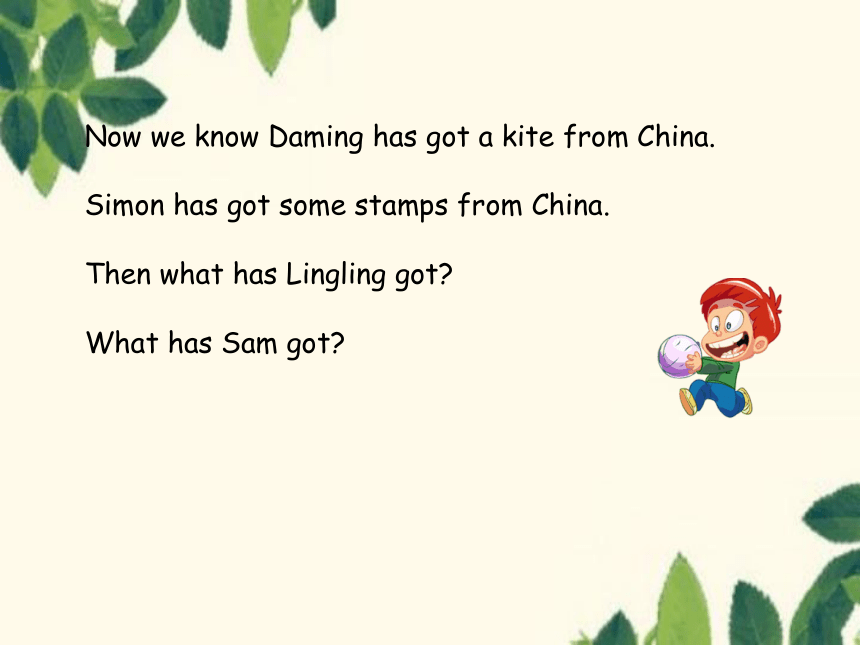
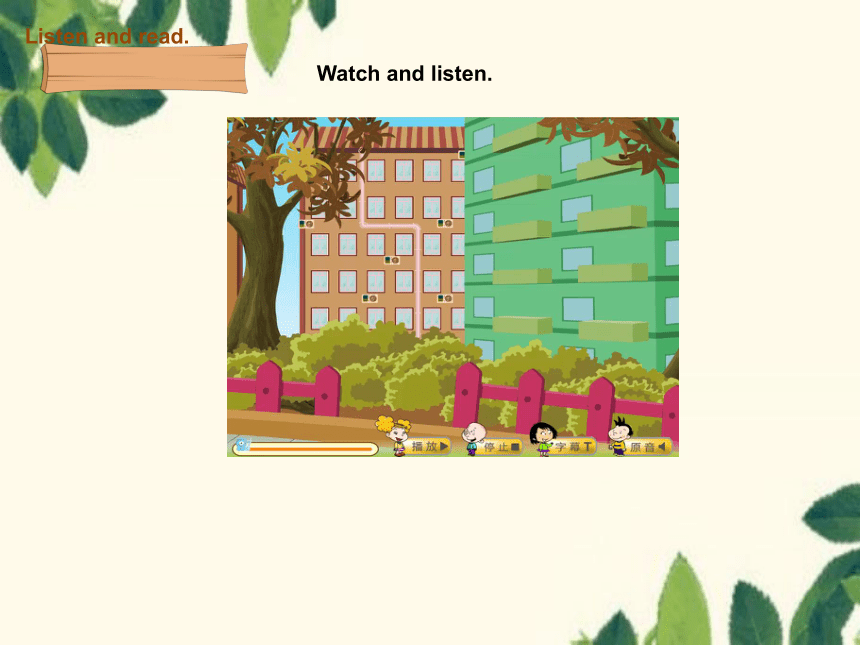
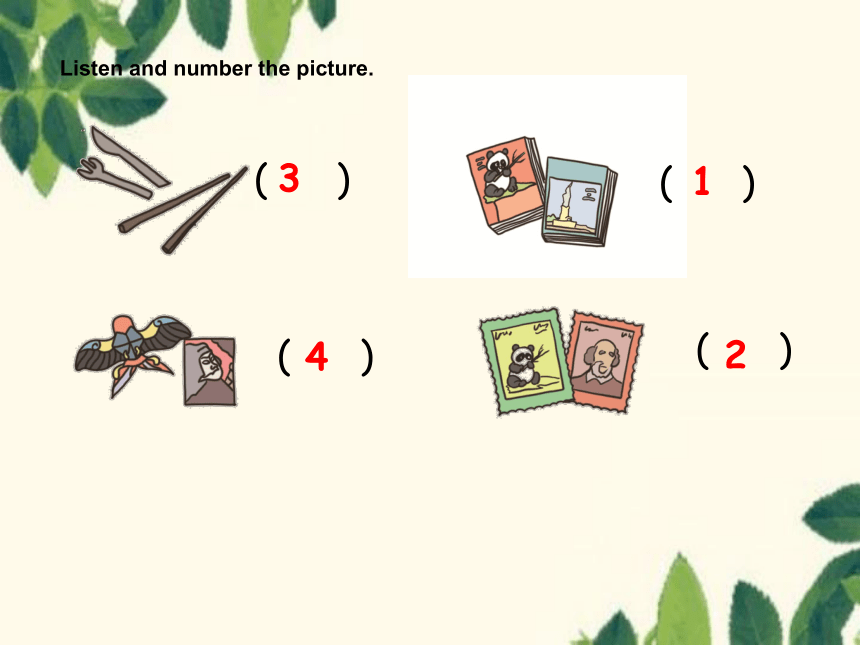
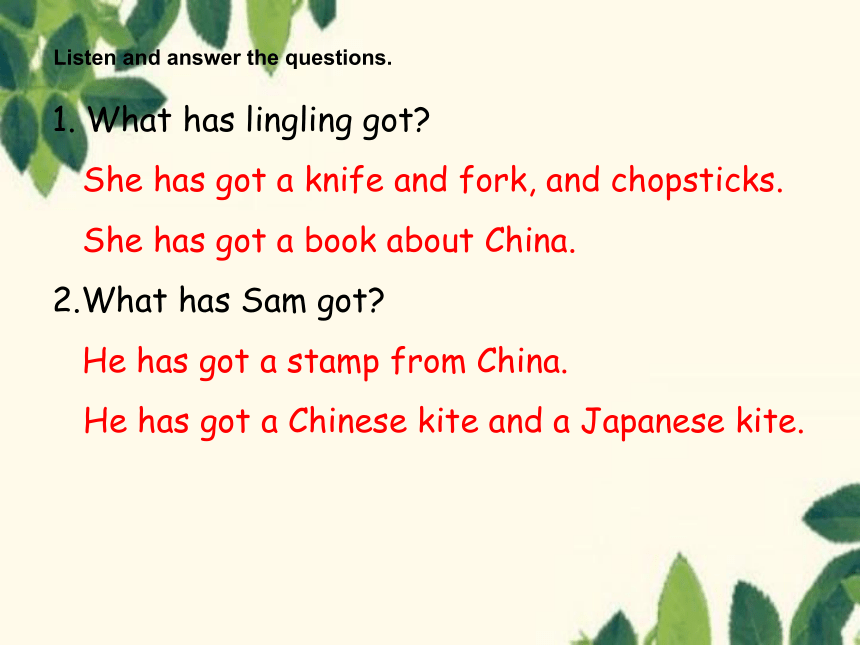
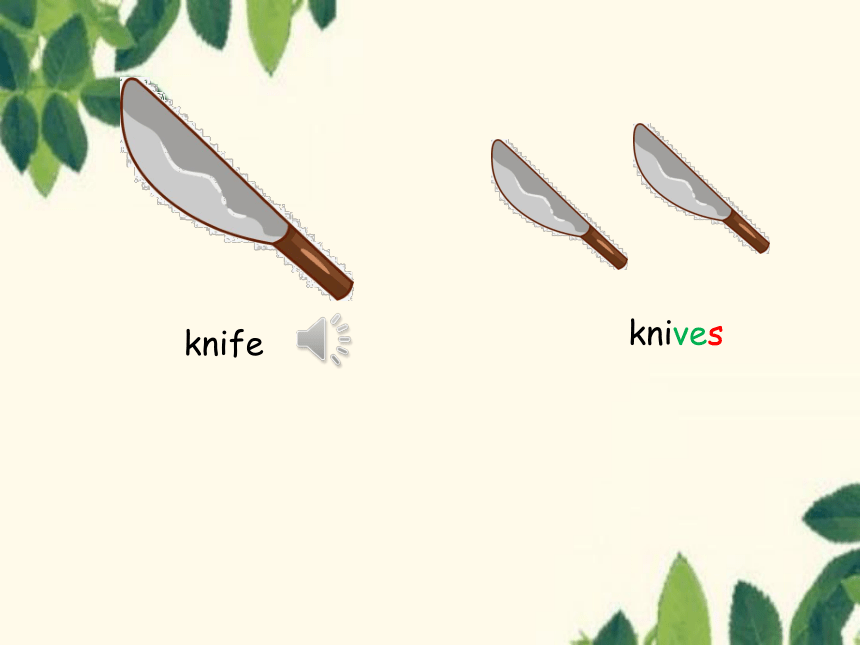
文档简介
(共40张PPT)
外研版·英语·六年级上册
第一课时
第二课时
Module 6
Unit 2 I’ve got a stamp from China.
第一课时
Do you want a pen friend
Have you got a pen friend
Have you got a kite from China
Have you got any stamps from China
Free talk.
Look, listen and say.
Watch and listen.
Listen and answer the questions.
1. Has Daming got a knife from China
No, he hasn’t.
2. Has Simon got any stamps from China
Yes, he has.
3. Has Simon got any food from China
No, he hasn’t.
Listen and read after it.
I‘ve got a kite from China.
I‘ve got some stamps from China.
And you’ve got some food from China!
Read in roles according to the following information.
Daming:
Simon:
Daming:
I’ve got a kite from China.
I’ve got some stamps from China.
And you’ve got some food from China!
Now we know Daming has got a kite from China. Simon has got some stamps from China.
Then what has Lingling got
What has Sam got
Listen and read.
Watch and listen.
Listen and number the picture.
( )
( )
( )
( )
1
2
3
4
Listen and answer the questions.
1. What has lingling got
She has got a knife and fork, and chopsticks.
She has got a book about China.
2.What has Sam got
He has got a stamp from China.
He has got a Chinese kite and a Japanese kite.
knife
knives
fork
forks
chopsticks
注:一般以复数形式出现。
This book is about Japanese history.
She is a Japanese.
They are Japanese.
Have you got a Chinese kite or a Japanese kite
此句是由have引导的选择疑问句。选择疑问句不能用yes或者no来回答,需根据实际情况有选择地回答。
-Do you like apples or oranges
-I like apples./I like oranges./I like apples and oranges.
例
句型结构: 一般疑问句 + or + 选择部分?
-Do you eat with a knife and fork or chopsticks
-I eat with chopsticks.
例
Pair work.
-Have you got… or…
-I’ve got… and…/I’ve got… but I haven’t got…
Sam: Have you got a knife and fork or chopsticks
Lingling: ___________________________________________
Lingling: Have you got a Chinese kite or a Japanese kite
Sam: ___________________________________________
Sam: Have you got a book about China or a book about the US
Lingling: ___________________________________________________
Lingling: Have you got a stamp from China or a stamp from Canada
Sam: ___________________________________________________
I’ve got a knife and fork, and chopsticks.
I’ve got a Chinese kite and a Japanese kite.
I’ve got a book about China, but I haven’t got a book about the US.
I’ve got a stamp from China, but I haven’t got a stamp from Canada.
Listen and complete.
Listen and read after it.
Sam: Have you got a knife and fork or chopsticks
Lingling: I’ve got a knife and fork, and chopsticks.
Lingling: Have you got a Chinese kite or a Japanese kite
Sam: I’ve got a Chinese kite and a Japanese kite.
Sam: Have you got a book about China or a book about the US
Lingling: I’ve got a book about China, but I haven’t got a book about the US.
Lingling: Have you got a stamp from China or a stamp from Canada
Sam: I’ve got a stamp from China, but I haven’t got a stamp from
Canada.
Sam: Have you got a knife and fork or chopsticks
Lingling: I’ve got a knife and fork, and chopsticks.
Lingling: Have you got a Chinese kite or a Japanese kite
Sam: I’ve got a Chinese kite and a Japanese kite.
Sam: Have you got a book about China or a book about the US
Lingling: I’ve got a book about China, but I haven’t got a book about the US.
Lingling: Have you got a stamp from China or a stamp from Canada
Sam: I’ve got a stamp from China, but I haven’t got a stamp from
Canada.
Read freely.
Read and complete.
Hello. I’m Sally and I live in Australia. Australia is a very big country and I live in the north.
I’ve got a sister. We don’t live near any schools, so my mother teaches us at home. We have classes in the morning and in the afternoon. We also go swimming and ride our horses.
I’d like to have a pen friend in China because I’m studying Chinese history.
1. Sally has got one ______________.
2. Sally’s teacher is ______________.
3. Sally is learning about ______________.
sister
her mother
Chinese history
关于have /has got 的常用固定句式:
第三人称单数主语+ has not got+ 宾语.
其他人称主语+ have not got+ 宾语.
have
/has
got
疑问句
陈述句
否定句
第三人称单数主语+ has got+ 宾语.
其他人称主语+ have got+ 宾语.
Has+ 第三人称单数主语+ got+ 宾语?
Have+ 其他人称主语+ got+ 宾语?
Summary
Summary
例句:
— Have you got a bike
你有自行车吗?
— Yes, I have.
是的,我有。
例:
— Have you got a knife and fork or chopsticks
— I’ve got a knife and fork, but I haven’t got chopsticks.
Practise.
仿照例句说句子。
— Have you got a Chinese book or a maths book
— I’ve got a Chinese book, but I haven’t got a maths book.
— Have you got a bicycle or a kite
— I’ve got a bicycle, but I haven’t got a kite.
第二课时
Read it as quickly as you can.
I’ve got…
Let’s review.
A: Have you got… or…
B: I have got... and…/I have got…, but I haven’t got…
Ask and answer.
Sam: Have you got a knife and fork or chopsticks
Lingling: I’ve got a knife and fork, and chopsticks.
Lingling: Have you got a Chinese kite or a Japanese kite
Sam: I’ve got a Chinese kite and a Japanese kite.
Sam: Have you got a book about China or a book about the US
Lingling: I’ve got a book about China, but I haven’t got a book about the US.
Lingling: Have you got a stamp from China or a stamp from Canada
Sam: I’ve got a stamp from China, but I haven’t got a stamp from Canada.
Read in groups.
Listen and say. Then chant.
Watch the video.
Listen and chant with it.
I’m happy! I’ve got a new pen friend.
Here is an email and now I can press “send”.
My pen friend’s in England.
Here name is Sue.
Give me your address.
You can be my pen friend too.
We can write about hobbies and families and friends.
We can always write emails and always be friends.
Let’s chant together.
I’m happy! I’ve got a new pen friend.
Here is an email and now I can press “send”.
My pen friend’s in England.
Here name is Sue.
Give me your address.
You can be my pen friend too.
We can write about hobbies and families and friends.
We can always write emails and always be friends.
I’ve got a TV.
I haven’t got a football, but I’ve got a basketball.
I’ve got a TV too. And I’ve got a football.
I haven’t got a basketball, but I’ve got a...
Follow and say.
I haven’t got…, but I’ve got...
I’ve got… and...
Make sentences.
Do and say.
Talk about the differences between you and your friend.
My name is Lulu. I’m Chinese. This is my friend Anne. She is American. I use chopsticks, but Anne...
Listen and learn to say.
I want to be your friend too.
I can send you one.
It’s difficult for me.
We can be pen friends.
Pair work.
问与答:
1.用“have got”互相询问对方有什么并回答,最后评比。
2.用“has got”询问他人有什么并回答,最后评比。
Summary
have/has got句型:
用法:
它表示某物归某人所有,是一种所属关系,主语为人。
否定句:
在have或has后加not,缩写为haven’t或hasn’t。
一般疑问句:
把have或has提前,h改为大写H。
单项选择。
1. Do you use a knife and fork ______ chopsticks at meals
A. at B. or C. of
2. We often eat noodles with ______ in China.
A. fork B. chopsticks C. knife
3. There are two _____.
A. fork B. knife C. knives
B
B
Practise.
C
按要求完成句子。
1. I have got some Chinese chopsticks. (改为一般疑问句)
______ you ___ ___ Chinese chopsticks
2. Have you got a new ruler (作肯定回答)
Yes, __ ____.
3. parents, got, a fork, your, have, or chopsticks (连词成句)
___________________________________
Have got any
I have
Have your parents got a fork or chopsticks
外研版·英语·六年级上册
第一课时
第二课时
Module 6
Unit 2 I’ve got a stamp from China.
第一课时
Do you want a pen friend
Have you got a pen friend
Have you got a kite from China
Have you got any stamps from China
Free talk.
Look, listen and say.
Watch and listen.
Listen and answer the questions.
1. Has Daming got a knife from China
No, he hasn’t.
2. Has Simon got any stamps from China
Yes, he has.
3. Has Simon got any food from China
No, he hasn’t.
Listen and read after it.
I‘ve got a kite from China.
I‘ve got some stamps from China.
And you’ve got some food from China!
Read in roles according to the following information.
Daming:
Simon:
Daming:
I’ve got a kite from China.
I’ve got some stamps from China.
And you’ve got some food from China!
Now we know Daming has got a kite from China. Simon has got some stamps from China.
Then what has Lingling got
What has Sam got
Listen and read.
Watch and listen.
Listen and number the picture.
( )
( )
( )
( )
1
2
3
4
Listen and answer the questions.
1. What has lingling got
She has got a knife and fork, and chopsticks.
She has got a book about China.
2.What has Sam got
He has got a stamp from China.
He has got a Chinese kite and a Japanese kite.
knife
knives
fork
forks
chopsticks
注:一般以复数形式出现。
This book is about Japanese history.
She is a Japanese.
They are Japanese.
Have you got a Chinese kite or a Japanese kite
此句是由have引导的选择疑问句。选择疑问句不能用yes或者no来回答,需根据实际情况有选择地回答。
-Do you like apples or oranges
-I like apples./I like oranges./I like apples and oranges.
例
句型结构: 一般疑问句 + or + 选择部分?
-Do you eat with a knife and fork or chopsticks
-I eat with chopsticks.
例
Pair work.
-Have you got… or…
-I’ve got… and…/I’ve got… but I haven’t got…
Sam: Have you got a knife and fork or chopsticks
Lingling: ___________________________________________
Lingling: Have you got a Chinese kite or a Japanese kite
Sam: ___________________________________________
Sam: Have you got a book about China or a book about the US
Lingling: ___________________________________________________
Lingling: Have you got a stamp from China or a stamp from Canada
Sam: ___________________________________________________
I’ve got a knife and fork, and chopsticks.
I’ve got a Chinese kite and a Japanese kite.
I’ve got a book about China, but I haven’t got a book about the US.
I’ve got a stamp from China, but I haven’t got a stamp from Canada.
Listen and complete.
Listen and read after it.
Sam: Have you got a knife and fork or chopsticks
Lingling: I’ve got a knife and fork, and chopsticks.
Lingling: Have you got a Chinese kite or a Japanese kite
Sam: I’ve got a Chinese kite and a Japanese kite.
Sam: Have you got a book about China or a book about the US
Lingling: I’ve got a book about China, but I haven’t got a book about the US.
Lingling: Have you got a stamp from China or a stamp from Canada
Sam: I’ve got a stamp from China, but I haven’t got a stamp from
Canada.
Sam: Have you got a knife and fork or chopsticks
Lingling: I’ve got a knife and fork, and chopsticks.
Lingling: Have you got a Chinese kite or a Japanese kite
Sam: I’ve got a Chinese kite and a Japanese kite.
Sam: Have you got a book about China or a book about the US
Lingling: I’ve got a book about China, but I haven’t got a book about the US.
Lingling: Have you got a stamp from China or a stamp from Canada
Sam: I’ve got a stamp from China, but I haven’t got a stamp from
Canada.
Read freely.
Read and complete.
Hello. I’m Sally and I live in Australia. Australia is a very big country and I live in the north.
I’ve got a sister. We don’t live near any schools, so my mother teaches us at home. We have classes in the morning and in the afternoon. We also go swimming and ride our horses.
I’d like to have a pen friend in China because I’m studying Chinese history.
1. Sally has got one ______________.
2. Sally’s teacher is ______________.
3. Sally is learning about ______________.
sister
her mother
Chinese history
关于have /has got 的常用固定句式:
第三人称单数主语+ has not got+ 宾语.
其他人称主语+ have not got+ 宾语.
have
/has
got
疑问句
陈述句
否定句
第三人称单数主语+ has got+ 宾语.
其他人称主语+ have got+ 宾语.
Has+ 第三人称单数主语+ got+ 宾语?
Have+ 其他人称主语+ got+ 宾语?
Summary
Summary
例句:
— Have you got a bike
你有自行车吗?
— Yes, I have.
是的,我有。
例:
— Have you got a knife and fork or chopsticks
— I’ve got a knife and fork, but I haven’t got chopsticks.
Practise.
仿照例句说句子。
— Have you got a Chinese book or a maths book
— I’ve got a Chinese book, but I haven’t got a maths book.
— Have you got a bicycle or a kite
— I’ve got a bicycle, but I haven’t got a kite.
第二课时
Read it as quickly as you can.
I’ve got…
Let’s review.
A: Have you got… or…
B: I have got... and…/I have got…, but I haven’t got…
Ask and answer.
Sam: Have you got a knife and fork or chopsticks
Lingling: I’ve got a knife and fork, and chopsticks.
Lingling: Have you got a Chinese kite or a Japanese kite
Sam: I’ve got a Chinese kite and a Japanese kite.
Sam: Have you got a book about China or a book about the US
Lingling: I’ve got a book about China, but I haven’t got a book about the US.
Lingling: Have you got a stamp from China or a stamp from Canada
Sam: I’ve got a stamp from China, but I haven’t got a stamp from Canada.
Read in groups.
Listen and say. Then chant.
Watch the video.
Listen and chant with it.
I’m happy! I’ve got a new pen friend.
Here is an email and now I can press “send”.
My pen friend’s in England.
Here name is Sue.
Give me your address.
You can be my pen friend too.
We can write about hobbies and families and friends.
We can always write emails and always be friends.
Let’s chant together.
I’m happy! I’ve got a new pen friend.
Here is an email and now I can press “send”.
My pen friend’s in England.
Here name is Sue.
Give me your address.
You can be my pen friend too.
We can write about hobbies and families and friends.
We can always write emails and always be friends.
I’ve got a TV.
I haven’t got a football, but I’ve got a basketball.
I’ve got a TV too. And I’ve got a football.
I haven’t got a basketball, but I’ve got a...
Follow and say.
I haven’t got…, but I’ve got...
I’ve got… and...
Make sentences.
Do and say.
Talk about the differences between you and your friend.
My name is Lulu. I’m Chinese. This is my friend Anne. She is American. I use chopsticks, but Anne...
Listen and learn to say.
I want to be your friend too.
I can send you one.
It’s difficult for me.
We can be pen friends.
Pair work.
问与答:
1.用“have got”互相询问对方有什么并回答,最后评比。
2.用“has got”询问他人有什么并回答,最后评比。
Summary
have/has got句型:
用法:
它表示某物归某人所有,是一种所属关系,主语为人。
否定句:
在have或has后加not,缩写为haven’t或hasn’t。
一般疑问句:
把have或has提前,h改为大写H。
单项选择。
1. Do you use a knife and fork ______ chopsticks at meals
A. at B. or C. of
2. We often eat noodles with ______ in China.
A. fork B. chopsticks C. knife
3. There are two _____.
A. fork B. knife C. knives
B
B
Practise.
C
按要求完成句子。
1. I have got some Chinese chopsticks. (改为一般疑问句)
______ you ___ ___ Chinese chopsticks
2. Have you got a new ruler (作肯定回答)
Yes, __ ____.
3. parents, got, a fork, your, have, or chopsticks (连词成句)
___________________________________
Have got any
I have
Have your parents got a fork or chopsticks
同课章节目录
- Module 1
- Unit 1 It's more than twenty thousand kilometers l
- Unit 2 It's in the west.
- Module 2
- Unit 1 There's Chinese dancing.
- Unit 2 There are lots of beautiful lakes in China.
- Module 3
- Unit 1 Collecting stamps is my hobby.
- Unit 2 What's your hobby?
- Module 4
- Unit 1 Thanksgiving is my favourite festival.
- Unit 2 Our favourite festival is the Spring Festiv
- Module 5
- Unit 1 Can you be my Chinese pen friend?
- Unit 2 I can speak French.
- Module 6
- Unit 1 You've got a letter from New York.
- Unit 2 I've got a stamp from China.
- Module 7
- Unit 1 I don't believe it.
- Unit 2 Pandas love bamboo.
- Module 8
- Unit 1 Do you often play with dolls?
- Unit 2 I often go swimming.
- Module 9
- Unit 1 Do you want to visit the UN building?
- Unit 2 I want to go to Shanghai.
- Review Module
- Unit 1
- Unit 2
- Module 10
- Unit 1 Don't talk in the library.
- Unit 2 Go straight on!
